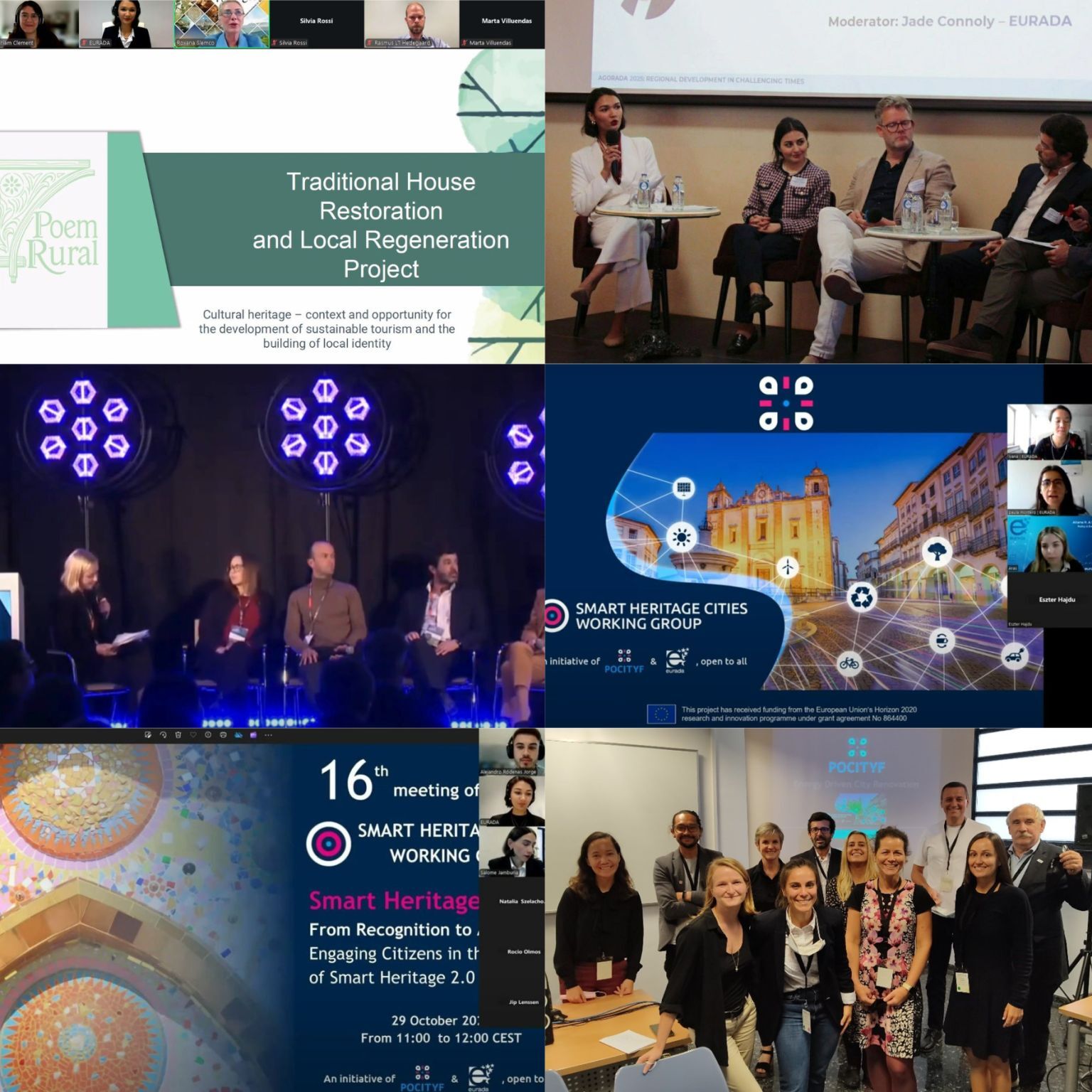This last session, titled “Heritage and Climate Resilience: Strategies for Adaptation”, brought together regional experts and practitioners to discuss how heritage areas can respond to climate challenges, from flood management and water control in historic centres to urban cooling, green retrofitting, and adaptive governance frameworks. The discussion focused on the need to balance environmental adaptation with conservation integrity, ensuring that heritage buildings and streetscapes remain both liveable and maintainable over time.
Two distinguished speakers from our members shared experiences from their regions, offering complementary perspectives on climate adaptation and innovation in heritage preservation.
Roxana Șlemco, Director of the North-East Regional Studies Centre at ADR Nord-Est (Romania), presented the region’s work on integrating circular economy principles into tourism and heritage building refurbishment. Over two decades of experience in regional development and European cooperation have positioned ADR Nord-Est as a frontrunner in linking sustainability, culture, and innovation to foster regional resilience.
Silvia Rossi, Manager of Clust-ER Build in ARTER Emilia-Romagna (Italy), showcased the region’s public-private network of construction and design actors driving the green transition in the built environment. Her intervention highlighted how the Smart Specialisation Strategy framework can help regional ecosystems generate sustainable solutions while promoting gender equality and environmental stewardship in architecture and construction.
Throughout its activities, the Working Group has served as a collaborative platform for regional development agencies, clusters, and municipalities, fostering dialogue between sectors to develop integrated models for heritage management and climate resilience. From governance and permitting processes to citizen engagement and innovative financing models, participants have exchanged good practices that position cultural heritage as a driver of sustainable transformation.
Concluding the session, Jade Connoly, Policy and Project Officer at EURADA, thanked participants and speakers for their contributions over the years, noting that the Working Group had become “a space where innovation and preservation meet, proving that climate resilience in heritage cities starts with empowered communities and collaborative governance.”
With this final session, EURADA and the POCITYF consortium celebrate the achievements of the Smart Heritage Cities Working Group and reaffirm their commitment to advancing sustainable, inclusive, and resilient urban environments across Europe.
Discover more about EURADA’s and POCITYDF work on heritage and urban innovation at www.eurada.org and at Homepage - POCITYF - POCITYF.
